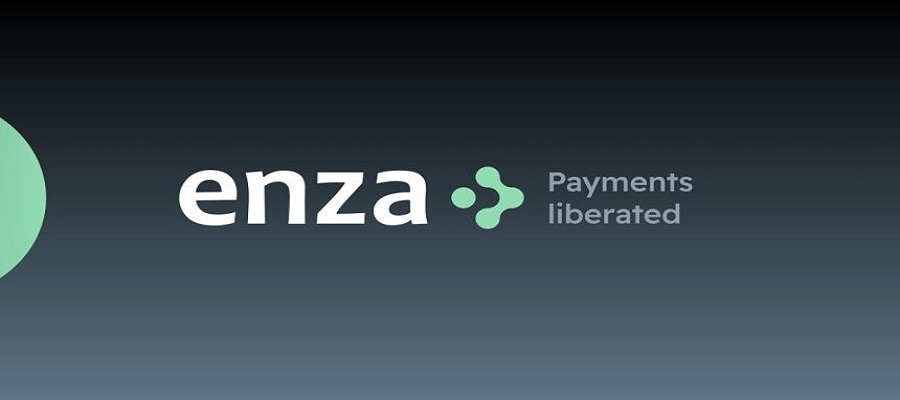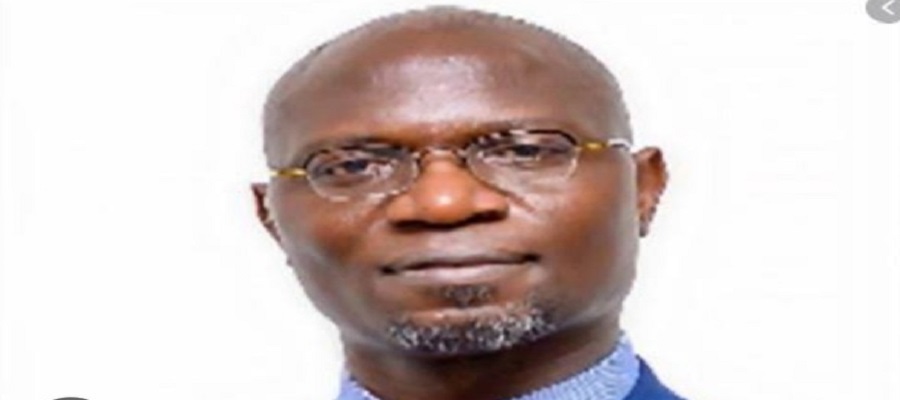E-Financial
Williams, Nigerian gets US Court Nod to Seize $21m from FG’s Account with JP Morgan

United States District Court Southern District of New York, has given one Louis Emovbira Williams, a Nigerian businessman, the authorisation to withdraw $21 million from Nigeria’s bank account with JP Morgan, used to stash funds from crude oil sales to foreign entities.

Bola Tinubu
Justice Liman Lewis, in August, denied Nigeria’s motion to dismiss the complaint filed by Mr Williams, who was scammed by the Nigerian government over a food importation business deal that cost him millions of dollars in 1986.
People’s Gazette reported that not only was Mr Williams swindled of $6.5 million by the Nigerian government, he said he was also tortured by the SSS and tried for “economic sabotage” after he returned to Nigeria from the UK to retrieve the funds. He was sentenced to 10 years imprisonment in 1986 but left prison in 1989, having languished in jail for three years.
He got a presidential pardon from Ibrahim Babangida, then military head of statein August 1993 and a “Fidelity Guarantee and Abiding Memorandum of Understanding of Assurance” for him to be paid approximately $6.5 million at 17 per cent compound interest on a rollover basis since 1986 and N5 million including a 25 per cent compound interest.
However, the payment didn’t come. CBN’s unwillingness to pay the lump sum left the matter unresolved for decades until Nigeria returned to civilian rule and prompted Mr Williams to file a suit at the UK court, where the West African nation was ordered to refund the businessman with compensation.
In 2018, Justice Mary Clare Moulder of the Queen’s Bench Division of the High Court of Justice in UK okayed the seizure of $21,231,960.74 and £19,763.130 from the Central Bank of Nigeria’s account domiciled in JP Morgan.
The defendants include the federal government, the attorney general of the federation, CBN, JP Morgan & Co. and other parties who have yet to be named in the suit.
Having obtained a court order authorising him to seize millions of dollars from Nigeria’s account with JP Morgan, the businessman argued his entitlement to the funds before the Supreme Court of the State of New York.
But CBN requested that the suit be transferred from the Supreme Court to a lower court where Nigeria can plead sovereignty.
There, Nigeria argued it had sovereign immunity, which made it impervious to the UK court order in that a sovereign state cannot subject itself to the orders of other nations.
But Mr Liman of the U.S. District Court of New York court dismissed Nigeria’s argument and held that the West African nation had already waived its sovereign immunity per the terms of the Fidelity Guarantee issued to Mr Williams in 1993.
“Therefore for the avoidance of doubt, both the Nigerian State and CBN must be deemed to have waived any immunity from levying of execution on amount kept in the name of CBN or State of Nigeria or any institution of Nigeria (save diplomatic) to the extent to which any amount in [paragraph] (14) above remains unpaid,” stated the 1993 Fidelity Guarantee that the Nigerian government issued to Mr Williams.
“Neither the Nigerian State nor the CBN shall raise or invoke any defences so as to deprive Dr Williams of his monies in [paragraph] (14) above or make it financially onerous and burdensome such as requiring Dr Williams to suffer,” the Guarantee added.
Mr Liman determined that Nigeria could not turn around to contend for sovereign immunity, which had already been waived in the Guarantee.
“Accordingly, the Fidelity Guarantee reflects a waiver of sovereign immunity for any proceeding in any court to recognise and enforce a judgement pertaining to Plaintiff’s seized funds,” the U.S. judge stated on August 12.
But the Nigerian government, reluctant to part with its cash asset, already sought to appeal the ruling at the Second Circuit in New York as records have been transmitted to the appellate court where the arguments will again be re-examined and redetermined.
Nigeria has already lost on a similar ground from another court of appeals in the U.S., the one in the District of Columbia in Washington D.C., which ruled in favour of Zhongshan Chinese investors to seize Nigerian assets abroad over a botched free trade zone deal.
The appellate decision in the Chinese case in the District of Columbia Circuit is not binding on the courts under the Second Circuit, where New York falls.
The case adds to the mounting list of litigations that sully Nigeria’s reputation among its international counterparts as courts in France, UK and Canada have similarly given orders greenlighting the confiscation of Nigerian assets abroad.
Mr Williams said the funds, when recovered, would be used to improve children’s health and education in Nigeria.
E-Financial
Enza Raises $6.75m Seed Funding to Boost Embedded Payment Solutions Across Africa

Enza, an embedded payment startup based in Dubai and founded by former Network International executives, has raised $6.75 million in seed equity funding. The round was co-led by Algebra Ventures and Quona Capital.

Founded in 2023, Enza’s payment solutions enable banks and fintechs to offer locally tailored payment services across African markets, including card issuance, digital wallets, and real-time payments.
The Enza platform is built to support both sides of the transaction chain — serving banks and fintechs on the issuing side, as well as SMEs and merchants on the acceptance side.
Existing client use cases feature the rollout of digital payment solutions, including domestic payment schemes, real-time payment services, mobile money, and Buy Now, Pay Later (BNPL) options, alongside international payment schemes across several African countries.
With operations in Egypt, Nigeria, and South Africa, the recent capital injection will help enza expand its footprint into other key markets throughout Africa.
Before founding enza, the leadership team oversaw global acceptance, processing, and consumer finance divisions at Network International.
Hany Fekry, CEO of enza, stated: “This investment is a strong vote of confidence in our team, our market-leading solutions, and our dedication to empowering banks and fintechs to advance financial inclusion across the continent.”
E-Financial
UBA Grows Profit to ₦804Bn, Declares N3 Kobo Final Dividend

United Bank for Africa (UBA) Plc has released its audited financial results for the full year ended December 31, 2024, with all major indicators witnessing significant improvement.

The bank’s profit after tax rose by 26.14 per cent to ₦766.6 billion, up from ₦607.7 billion recorded at the end of the 2023 fiscal year.
UBA’s gross earnings also grew significantly from ₦2.08 trillion recorded at the end of the 2023 financial year to ₦3.19 trillion in the period under consideration, representing a 53.6 per cent growth.
The bank’s total assets rose remarkably by 46.8 per cent, from ₦20.65 trillion in 2023, to close at ₦30.4 trillion in December 2024.
Oliver Alawuba, group managing director/chief executive officer, UBA, said the bank’s performance demonstrated its focus on driving earnings growth, preserving asset quality, and expanding business operations.
The bank has proposed a final dividend of ₦3.00 kobo per share, bringing the total dividend for the year to ₦5.00.
The dividend is subject to shareholder approval at the upcoming Annual General Meeting.
UBA is one of the largest employers in the financial sector on the African continent, with 25,000 employees group-wide and serving over 45 million customers globally.
E-Financial
SEC Declares War on Capital Market Fraudsters

Securities and Exchange Commission (SEC) has reaffirmed its commitment to ensuring that only fit and proper individuals are permitted to operate in Nigeria’s capital market to enhance investor protection.

Speaking in an interview in Abuja over the weekend, Dr. Emomotimi Agama, director-general, SEC, emphasized that market operators engaging in unscrupulous activities would not be allowed to go unpunished.
According to him, “It’s important that, as a form of self-regulation, they are aware beforehand that if you do what is not right, the SEC will bring you out to the wall to say that you do not have character, because the very ethics of regulating or of registering a securities market operator is in the principle of the fit and proper person’s test.
“A fit and proper person’s test means that you satisfy all of the requirements that have been laid down in the Investments and Securities Act 2007 and in other regulations that the SEC has brought out to make sure that this happens.
“Disclosures by public companies will be very, very essential making sure that the investor has enough information to make decisions. If information is not provided, then that will be against the rules and regulations of the SEC and indeed, the ISA. So clearly for us, it is getting people to understand that there is no hiding place anymore for anybody that has an intention to defraud Nigerians and to defraud anybody that is investing in this market.”
The SEC Director-General stated that investor protection is a fundamental principle for the Commission, as the Investments and Securities Act (ISA) 2007 clearly outlines the objectives of securities regulation in Nigeria, with investor protection and market development as its twin priorities.
He emphasized that for any market to thrive, investor protection must remain a top priority.
He further asserted that the SEC is committed to ensuring that all market participants understand the Commission’s sacred responsibility, stressing that the SEC’s leadership, entrusted with this duty by President Bola Ahmed Tinubu, will carry it out effectively.
“It is important to state clearly that every investor in Nigeria is under the cover of the SEC as long as the person operates within the Nigerian capital market. And so the year 2025 is a year where we say that there is zero tolerance for any activity that does not fall within the laws of the Investments and Securities Act 2007.
“We are excited that the National Assembly has passed the new Investment and Securities Act and we are earnestly waiting for the President’s assent as the Bill is going through an administrative process to get to the President, to get it assented to.
“And that alone also signifies our intention to make sure that everyone that is investing in this market, or intends to invest in this market has a cover. That cover runs across so many lines, particularly, let me mention that Ponzi schemes will no longer be a place where people will be factoring, where people will be interested in, because the penalties in the new ISA you know, towards people that are engaged in Ponzi scheme is stiff enough to deter them.”

 Broadcasting2 days ago
Broadcasting2 days agoNGO Blasts MultiChoice for Tariff Hike in Nigeria, Slash in South Africa

 E-Business2 days ago
E-Business2 days agoOtti, Abia State Gov Promises Internet Access for all Abia Communities in 9 Months

 News2 days ago
News2 days agoNIPOST Explains Clamping Down on Illegal Logistics Services in Enugu

 Telecom2 days ago
Telecom2 days agoTelcos Mull Introduction of Different Tariff Plans for Different States

 News2 days ago
News2 days agoNESREA Urges Nigerians to Dispose Batteries Properly to Avoid Hazards

 E-Financial2 days ago
E-Financial2 days agoCITN Seeks AI to Curb Revenue Leakage in Nigeria’s Tax System

 News2 days ago
News2 days agoTony Elumelu Foundation Grants $15m to 3,000 African Entrepreneurs

 E-Financial2 days ago
E-Financial2 days agoSEC Declares War on Capital Market Fraudsters

























